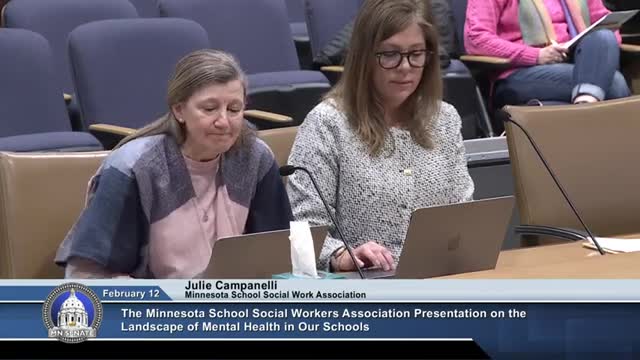Educators tell Senate student mental health crisis is worsening; schools short on social workers
Get AI-powered insights, summaries, and transcripts
Subscribe
Summary
Educators told the Senate Education Policy Committee that student mental health needs are rising, with more crisis incidents, high rates of reported long-term mental health problems among students and shortages of school-based social workers and counselors.
Educators and school social workers told the Senate Education Policy Committee this week that student mental health needs have increased and that many districts lack the staffing to respond.
Testifiers described an increase in elementary-level suicide risk assessments and classroom disruptions tied to student mental-health crises. One school social worker said, “In my school district alone, over the last two weeks, we have conducted almost 20 suicide risk assessments and the majority of these assessments were conducted in elementary buildings.”
Committee witnesses cited survey data showing that one-third of Minnesota students report long-term mental health problems and that symptoms of anxiety and depression have risen since 2019. Witnesses said that unmet mental health needs contribute to chronic absenteeism, which has nearly doubled in Minnesota over the last decade and increases the risk of later dropping out of high school.
School social workers and other student support personnel told the committee that more than half of the state's social workers are part time or split across multiple schools, contributing to burnout and vacancies. The 2023 creation of the Student Support Personnel Workforce Pipeline Program — a grants program to encourage university-level programs to train counselors, psychologists and social workers — was cited as a recent step, but witnesses and some committee members questioned whether school-based services are the right point of delivery and whether additional or different investments are needed.
Committee members and testifiers discussed the pipeline program and other options but did not record any final committee action in the segments reviewed.
